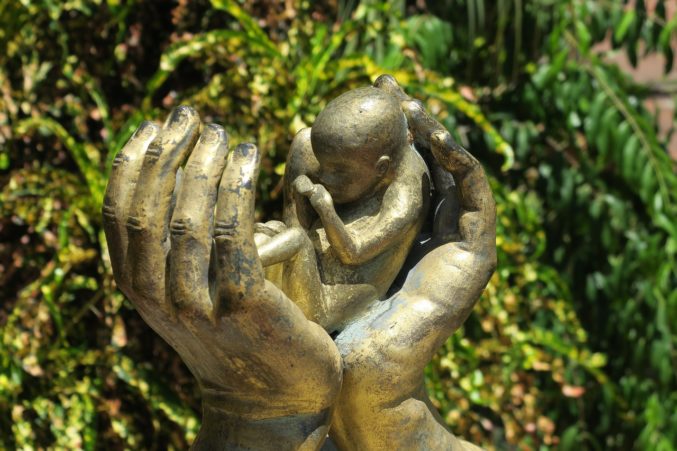By Margaret Hickey
In its magazine section at the weekend, The Sunday Independent published an article entitled ‘A letter to the first woman to have a legal abortion in Ireland’. The writer was novelist, Mary O’Donnell. The letter acknowledges how difficult it can be to decide to have a termination but nonetheless presents abortion as profoundly liberating and a great leap forward for Irish women. The word ‘baby’ doesn’t appear once in the article. Instead, abortion is described as “the procedure of ending the cellular metabolism of one’s own species”.
Mary O Donnell speaks of the woman making her difficult decision, ‘with full consenting knowledge’. But is it “full consenting knowledge” when the Government resisted amendments to their legislation that would ensure a woman is offered the chance to see an ultrasound image of her baby? With full knowledge of what an abortion involves, she might change her mind, protecting her from the possibility of later regret.
Active counselling during the three-day waiting period prior to an abortion would also be a step towards ensuring women could reflect with full knowledge on their choice and explore other options. The Tanaiste, Simon Coveney, needed such assurances to support the legislation. Yet he, like so many others, voted against each and every amendment to the Government’s abortion bill. Health Minister Simon Harris’s Special Adviser on the implementation of the legislation, Dr Peter Boylan, does not even want the three day wait and has spoken publicly against it without being rebuked by Coveney or anyone else.
Mary O Donnell use of the now familiar mitigating, masking language of pro-choice advocates is clumsily contorted. In her words, abortion ‘ ends the cellular metabolism of one’s own species’. But the raw reality of what she is talking about quite literally penetrates in phrases like ‘ the pinprick heartbeat’.
Moral ambiguity is everywhere in her letter. She writes that abortion leaves the soul, ‘whole, pure and intact’, ‘as if the situation had never arisen’. No more than an exercise of morally legitimate, and now legally sanctioned, bodily autonomy. One that frees a woman to pick up again the threads of her life, whether that be a career or a holiday or downing ‘ ten shots in some bar’. But the language of emotional honesty keeps intruding. Abortion is a decision ‘to end the life of our own species’, even if she very strangely describes this as “ending the cellular metabolism of our one’s own species”. (When else do we describe the death of our own in this way?)
She urges the woman to ‘put the experience to rest (it will never disappear) the best you can’, to embrace the budding life of a new Springtime, ‘the first cold-tolerating snowdrops and crocuses.’ Emotional honesty is never so poignant as when it is unintended.
Turning abruptly aside from the apposite imagery of newly emerging life, she wheels around again to the language of denial, referring to women who bore large families in the past, as Russian babushka dolls, mechanical wombs, producing seemingly endless small replicas of themselves. Figurines, not babies. She is talking about the families of our grandparents and parents. They are or were human beings, real people through whom we exist, often greatly loved and hugely influential in our lives. Her dismissive and diminishing language is sadly of a part with the terminology of the Choice movement that reduces unwanted, unborn human life to terms like ‘pregnancy tissue’ or, in O Donnell’s article, a ‘bundle of blood cells’.
The era of ‘doll women’ is over she tells us. But not the era of the ‘doll baby’. We have entered an era that is willing to discard unborn babies as readily as unwanted dolls. The logic of choice is terrifying. Already, we see Choice campaigners in Ireland making the case for extending the grounds for abortion. In the US where the abortion regime is already very liberal we have seen legislation to allow abortion to birth in New York in recent weeks and similar proposals in Virginia. The implications of elevating choice to over human life itself are immense and awful.

















